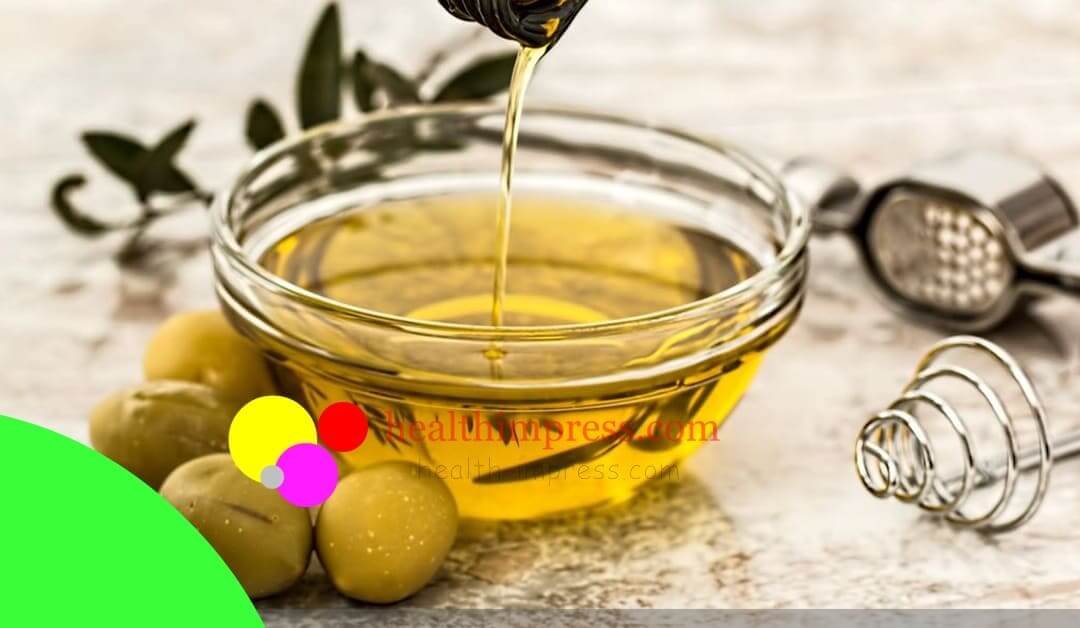Diets & Weight Loss
The Side Effects of Consuming Too Much Oil
The side effects of consuming too much oil will take us through detailing dietary fats, oils, and cholesterol. In this, we will have a look at monounsaturated fats, polyunsaturated fats, trans fats, and how much and the types of oil one should consume.
For proper functioning, simply put, you need a small quantity of fat in your diet. Oils and fats provide calories and vital fats, as well as aiding the absorption of fat-soluble vitamins including A, D, E, and K.
When it comes to the side effects of consuming too much oil, the type of fat consumed is equally as significant as the overall amount of fat taken in terms of health. That is why it is critical to prefer unsaturated fats over saturated fats. Saturated and trans fats, as well as eating too much of them, can raise dangerous LDL cholesterol and lower healthy HDL cholesterol. High blood pressure, artery hardening (atherosclerosis), heart attack, and stroke are all risks associated with this imbalance.
Saturated Fat, what is it?

Saturated fat raises harmful cholesterol (LDL). LDL cholesterol is linked to an increased risk of heart disease and stroke. According to new studies, saturated fats may have various effects on your health depending on the source of the saturated fat.
To help minimize your intake of saturated fat, it is advised to switch to more plant-based foods.
Saturated fat is found in foods such as:
- Palm kernel oil, coconut oil, fatty meats, butter, hard margarine, lard, ghee, and dairy products with high-fat content.
Saturated fats are essentially fat molecules that lack double bonds between carbon atoms due to hydrogen atom saturation. At normal temperature, saturated fats usually solidify.
HealthImpress.com
Monounsaturated fats, what is it?
Monounsaturated fats are a type of fat that contains no saturated fatty acids.
Monounsaturated fats have been demonstrated to lower cholesterol levels in the blood. They can be found in the following oils:
- Canola oil, olive oil, peanut oil, margarine that hasn’t been hydrogenated,
- Almond and pistachios oil
- Cashew and hazelnut oils
Polyunsaturated fats, what is that?
Polyunsaturated fats are lipids that are rich in omega-3 fatty acids.
A lipid is any of various organic compounds that are insoluble in water. They include fats, waxes, oils, hormones, and certain components of membranes, and function as energy-storage molecules and chemical messengers.
Britannica.com
Polyunsaturated fats can help you lower your bad cholesterol (LDL cholesterol). Omega-3 fatty acids, for example, can help prevent blood clotting, lowering the risk of stroke, and lowering triglycerides, a kind of blood fat associated with heart disease.
Triglycerides are lipids (waxy fats) that give your body energy. Your body makes triglycerides and also gets it from the foods you eat. High triglycerides combined with high cholesterol raise your risk of heart attack, strokes and pancreatitis. Diet and lifestyle changes can keep triglyceride levels in a healthy range
Clevelandclinic.org
To help you fight the side effects of consuming too much oil, the following are the finest sources of omega-3 fat:
- Cold-water fish such as sardines, salmon, mackerel, herring, and rainbow trout,
- Soybean and Canola oils,
- Pine nuts, pecans, walnuts, flaxseed oils, and eggs.
Omega-6:
Omega-6 is a form of polyunsaturated lipid. It helps lower LDL cholesterol, but it’s also thought to lower beneficial HDL cholesterol in excessive doses. The advice is to consume it in moderation.
Omega-6 examples
- Sunflower oil, safflower oil, corn oil, non-hydrogenated margarine, and
- Nuts including almonds, pecans, brazil nuts, and sunflower seeds.
Note: omega-6 is also available in a lot of ready-to-eat meals.
Ultra-processed foods
On daily basis, in our diets, most people eat highly and ultra-processed foods, which are a key source of saturated fats.
These foods contain numerous ingredients and have undergone extensive processing in a facility, resulting in a product that does not resemble its original source.
Foods that have been highly processed include:
- Cookies, burgers, donuts, cakes
- Hot dogs, French fries, chips
- Deli meat and snacks
Advice: To be able to fight the side effects of consuming too much oil, it is advisable that saturated fats, salt, as well as sugar, and trans fats are reduced. By simply minimizing these highly processed meals, we are doing a great service to our bodies.
What are Trans fats?
Artificial trans fat was a type of fat that was used to improve the taste and texture of some foods while also extending their shelf life. Trans fats, on the other hand, can raise your risk of heart disease by raising your bad LDL cholesterol and lowering your good HDL cholesterol.
How much fat should you eat in a day?
The type of fat consumed is more important than the amount of fat consumed. Did you get that? I said the amount of fat consumed is not important as the type of fat consumed.
The intention is not to reduce total fat in the diet. Rather, it is helpful to reduce the intake of saturated fats, while encouraging foods that contain mostly unsaturated fat.
Advice: Focus on a well-balanced diet rich in fruits, vegetables, proteins, and whole grains, from a range of sources, including nuts, lean meats, legumes, low-fat dairy and substitutes, and fish.
If you have to consume oil, take note of the type, and well, the quantity. Don’t drink oil as others do, literally.
Health Impress
Limit your intake of highly processed foods. Instead of focusing solely on weight, consider the big picture. Reduce the amount of saturated fat in your diet by minimizing highly processed meals and opting for full, natural foods, especially more plant-based foods.
The quantity of fat that a child or adolescent requires is determined by their height, build, gender, and degree of activity. For growth and development, young children require slightly more fat, but as they get older, they require less.
What is the definition of dietary cholesterol?
Around 80% of the cholesterol in your body is produced by your liver. The remaining 20% comes from the meals you consume. Saturated fat-rich foods, such as fatty meat and whole-fat dairy products, snack foods, and some ready-made foods, are the foods that elevate blood cholesterol the most. The following foods have high levels of dietary cholesterol:
- Shrimps, egg yolks, and fatty meats.
Only some people are affected by dietary cholesterol. The best strategy to control blood cholesterol from a nutritional standpoint is to consume a healthy, low-fat diet that is low in saturated and trans fat. According to studies, eating one egg per day (or seven eggs per week) does not raise the long-term risk of heart disease in healthy persons without a history of heart disease, diabetes, or high blood cholesterol.
Conclusion to side effects of consuming too much oil
So far regarding how to deal with the side effects of consuming too much oil, we have learned that saturated fat intake should not be an issue if you eat a healthy, balanced diet of whole/natural foods with few or no highly processed foods and stick to the recommended serving sizes.
For proper functioning, you need a small quantity of fat in your diet. Oils and fats provide calories and vital fats, as well as aiding the absorption of fat-soluble vitamins. Consuming too much oil can lead to high blood pressure, artery hardening (atherosclerosis), heart attack, and stroke.
Also, it has been established that saturated fats may have various effects on your health depending on the source. To help minimize your intake of saturated fat, it is advised to switch to more plant-based foods. Trans fats, on the other hand, can raise your risk of heart disease and lower your good cholesterol.
That is it on the topic side effects of consuming too much oil.
Take care!


